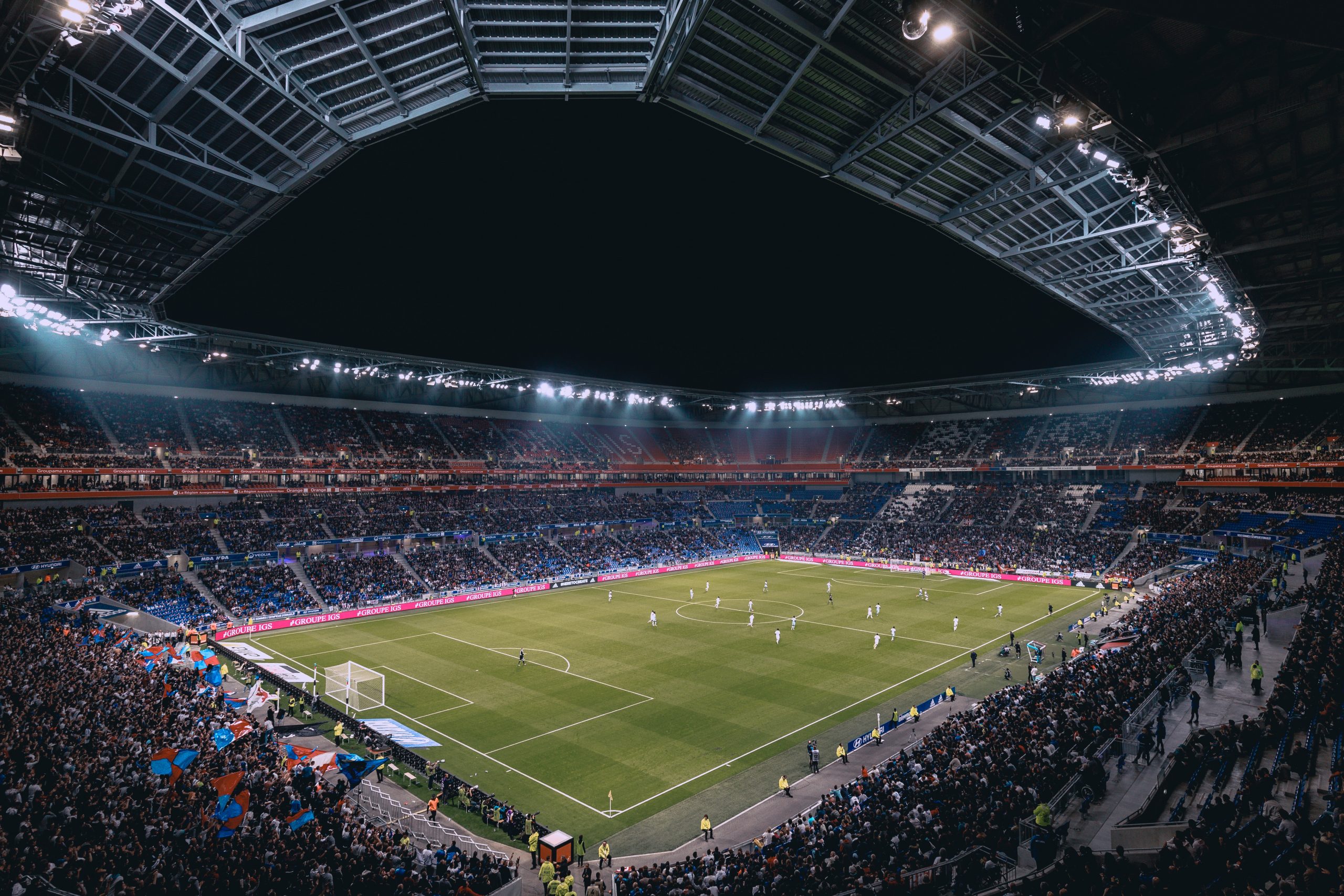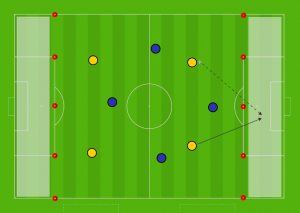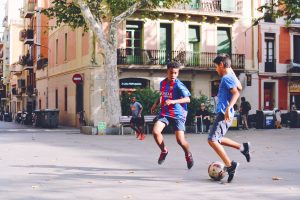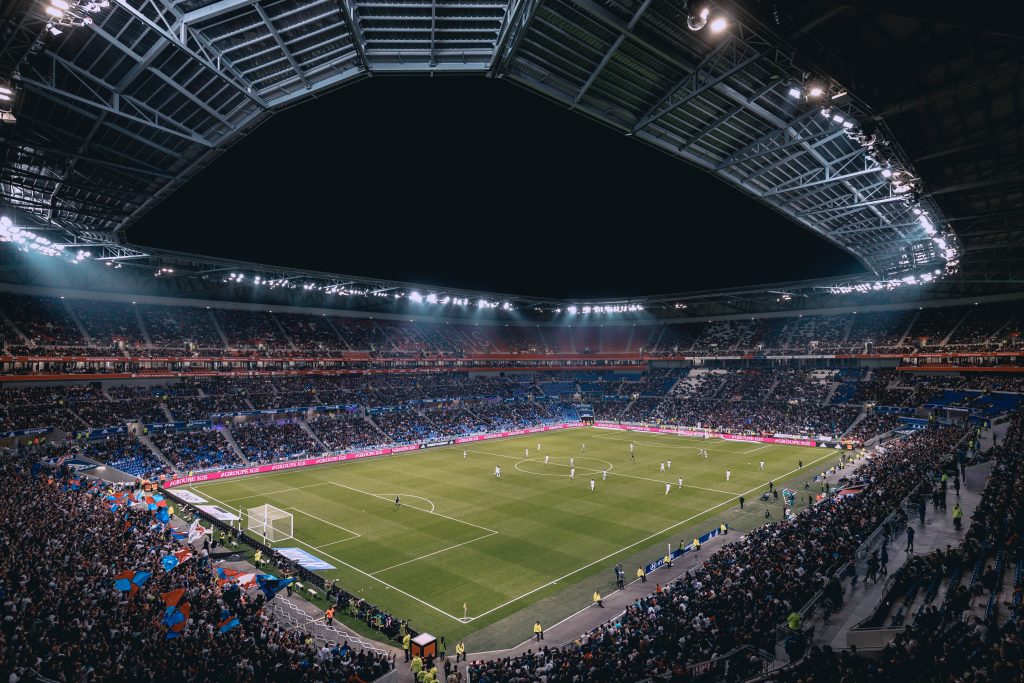
One hour. This is all most grassroots coaches have to work with their players during a week. Sure, there are things we can do before and during games, but ultimately this should be the time for players to express themselves. It's really not that much time for us to help our players. What they do away from practice is vital for their development.
The following 5 ideas are things that have helped teams of mine in the past. They may not be for every coach or player. I do feel that at least one of these ideas will suit your style and where your players currently are on their journey.
Home Practice

When you were growing up, I imagine the first thing you did when you got home from school was get changed and head outside to play. I certainly did (at least until I got called back to finish my homework!). As the first one of my friends' home, I'd practice juggles, chips, moves, curling the ball with the inside and outsde, one touch passing against a wall...anything I could think of. That mentality seems to have changed in modern times. Whether it is a cultural thing, kids having a lot more going on or simply a lack of interest in the game, there appears to be less and less children practicing on the streets.
In order to combat this, my current grassroots team have home practice cards. They tick off everyday they have performed the moves, turns and ball manipulation techniques for the week for at least 10 minutes. There are some who still don't practice at all. The majority of the group do however and it has shown in their recent game performances. The girls have become more confident using different parts of their feet to turn, dribble and pass. I have seen backheel passes in each of the last 2 games catch opponents off guard. Even the players who were late sign ups have moved away from just kicking the ball to controlling it, looking around and making a decision. It's been great to see.
The other bonus of home practice is that it means my sessions with them can be more about decision-making and spatial awareness. As a result the girls have learned techniques that work for them, as well as developing their game intelligence in certain situations.
Watch a Game

I can still remember the first 2 games I watched. On TV it was Aston Villa vs Everton. We (Villa) won 6-2. A few months later, I went to my first live game where we beat Arsenal 2-1. I can name the scorers, the managers, the starting lineup for our team (and some of theirs). I'm pretty sure I could name the order of the scorers as well. I also recall certain international tournaments, where I would get to witness the foreign superstars that I otherwise wouldn't see. This goal in Euro '96 by Karel Poborsky is a technique that my friends and I tried over and over again in the weeks that followed.
Watching games has a massive impact on players. I remember coaching a young lad in the US who was obsessed with Neymar and would watch whatever games and clips he could that Neymar played in. As a result, whenever he had as spare moment, he would be practicing the same tricks and skills that he had seen Neymar perform in games. Not everybody is this dedicated and for some, a game is nothing more than a day out to hang out with their mates.
Ask your players to watch a game (on TV or live) and set them some tasks
Who scored
Who was the better team
Who was their favourite player
Which team had the most shots
What was their favourite moment
Giving them this will help them think about the game in a different way to simply watching it. They will have to be present in terms of whats happening and if they see one thing that they can add to their game, it will have been a success.
Self Evaluation

As coaches, we evaluate our own sessions and performance mercilessly. We know it's the main way in which we can improve. Foundation age players are less likely to do so. This is not because they don't want to improve. They have so many interests at that age that their brains are moving at 100 miles an hour.
A few years ago I was introduced to an app called After Action. The idea was that players would evaluate their own perfromance after games. They would rank themselves out of 10 in certain topics (attacking, defending, work rate etc) and leave a commenton how they think they did. I used it with a U12 team that I coached who really seemed to embrace the idea. What was fascinating to me was how they rated themselves. One girl consistently gave herself marks of 5 and 6. In my opinion, she performed way above this. The result was that it led her to practice more in her spare time and I'm pleased to say that she is now playing at ECNL level.
Whether you decide to use an app, or create your own document, self evaluation can be a massive tool in your players development. Keep it swift (we don't want our players getting bored) and they will come to enjoy spending 4-5 minutes reviewing themselves.
Send Out Your Training Sessions Before Practice

I was recently listening to an episode of The Soccer Coaching Podcast when the idea of sending out session plans prior to practice came up. It's a fantastic idea, and one that I have since used. For my U8 team, for example, we recently went from using a diamond formation in game to a 2-2. I sent out a short animation prior to the first game we used it in and the players adapted like they were seasoned pro's. Practice animations have also gone out and I have found that the sessions have run much smoother. Less questions are being asked in terms of how the activity is run, meaning the players have more time to participate.
An app like Planet Training is great for putting together moving animations. Players can visualise how the practice should look. This can also be stretched to small sided-games, giving players ideas of movements and decisions that can be made during a game.
Play a Game

"My position is this - street soccer is the most natural educational system that can be found." - Rinus Michels
No adults. Any open surface. Unlimited amount of players. Wide range of ages. Freedom to try things. Internal pressure only. 40+ goals a game. Games lasting for 3+ hours. Opportunity to build insinctive reactions.
The great Johan Cruyff once said that he trained 3-4 hours a week at Ajax, but 3-4 hours a day on the street. For him, that was where he truly learned to play the game.
Encouarge your players to get together. Replace end of season trophies/medals with a ball so they have the opportunity to go out and use it. You'll be thankful when you see them flourish.

